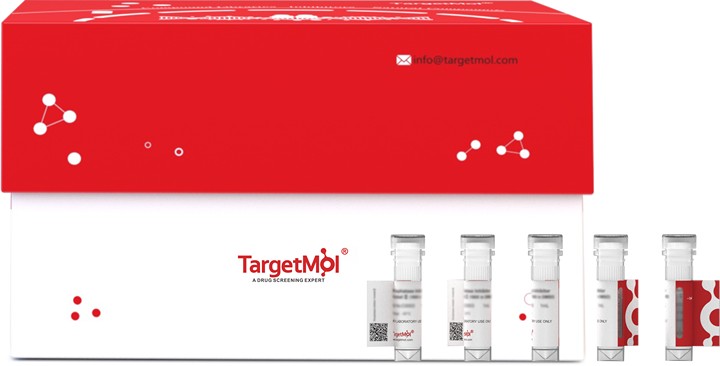Shopping Cart
- Remove All
 Your shopping cart is currently empty
Your shopping cart is currently empty

Plays a key role in the repair of DNA damage, functioning as part of both the non-homologous end-joining (NHEJ) and base excision repair (BER) pathways. Through its two catalytic activities, PNK ensures that DNA termini are compatible with extension and ligation by either removing 3'-phosphates from, or by phosphorylating 5'-hydroxyl groups on, the ribose sugar of the DNA backbone. PNKP Protein, Human, Recombinant (His & SUMO) is expressed in E. coli expression system with N-6xHis-SUMO tag. The predicted molecular weight is 73.1 kDa and the accession number is Q96T60.

| Pack Size | Price | Availability | Quantity |
|---|---|---|---|
| 20 μg | $198 | 20 days | |
| 100 μg | $427 | 20 days | |
| 1 mg | $1,830 | 20 days |
| Biological Activity | Activity has not been tested. It is theoretically active, but we cannot guarantee it. If you require protein activity, we recommend choosing the eukaryotic expression version first. |
| Description | Plays a key role in the repair of DNA damage, functioning as part of both the non-homologous end-joining (NHEJ) and base excision repair (BER) pathways. Through its two catalytic activities, PNK ensures that DNA termini are compatible with extension and ligation by either removing 3'-phosphates from, or by phosphorylating 5'-hydroxyl groups on, the ribose sugar of the DNA backbone. PNKP Protein, Human, Recombinant (His & SUMO) is expressed in E. coli expression system with N-6xHis-SUMO tag. The predicted molecular weight is 73.1 kDa and the accession number is Q96T60. |
| Species | Human |
| Expression System | E. coli |
| Tag | N-6xHis-SUMO |
| Accession Number | Q96T60 |
| Synonyms | Polynucleotide kinase-3'-phosphatase,PNKP,DNA 5'-kinase/3'-phosphatase,Bifunctional polynucleotide phosphatase/kinase |
| Amino Acid | MGEVEAPGRLWLESPPGGAPPIFLPSDGQALVLGRGPLTQVTDRKCSRTQVELVADPETRTVAVKQLGVNPSTTGTQELKPGLEGSLGVGDTLYLVNGLHPLTLRWEETRTPESQPDTPPGTPLVSQDEKRDAELPKKRMRKSNPGWENLEKLLVFTAAGVKPQGKVAGFDLDGTLITTRSGKVFPTGPSDWRILYPEIPRKLRELEAEGYKLVIFTNQMSIGRGKLPAEEFKAKVEAVVEKLGVPFQVLVATHAGLYRKPVTGMWDHLQEQANDGTPISIGDSIFVGDAAGRPANWAPGRKKKDFSCADRLFALNLGLPFATPEEFFLKWPAAGFELPAFDPRTVSRSGPLCLPESRALLSASPEVVVAVGFPGAGKSTFLKKHLVSAGYVHVNRDTLGSWQRCVTTCETALKQGKRVAIDNTNPDAASRARYVQCARAAGVPCRCFLFTATLEQARHNNRFREMTDSSHIPVSDMVMYGYRKQFEAPTLAEGFSAILEIPFRLWVEPRLGRLYCQFSEG |
| Construction | 1-521 aa |
| Protein Purity | > 90% as determined by SDS-PAGE. |
| Molecular Weight | 73.1 kDa (predicted) |
| Endotoxin | < 1.0 EU/μg of the protein as determined by the LAL method. |
| Formulation | Tris-based buffer, 50% glycerol |
| Reconstitution | A Certificate of Analysis (CoA) containing reconstitution instructions is included with the products. Please refer to the CoA for detailed information. |
| Stability & Storage | Lyophilized powders can be stably stored for over 12 months, while liquid products can be stored for 6-12 months at -80°C. For reconstituted protein solutions, the solution can be stored at -20°C to -80°C for at least 3 months. Please avoid multiple freeze-thaw cycles and store products in aliquots. |
| Shipping | In general, Lyophilized powders are shipping with blue ice. Solutions are shipping with dry ice. |
| Research Background | Plays a key role in the repair of DNA damage, functioning as part of both the non-homologous end-joining (NHEJ) and base excision repair (BER) pathways. Through its two catalytic activities, PNK ensures that DNA termini are compatible with extension and ligation by either removing 3'-phosphates from, or by phosphorylating 5'-hydroxyl groups on, the ribose sugar of the DNA backbone. |

Copyright © 2015-2025 TargetMol Chemicals Inc. All Rights Reserved.